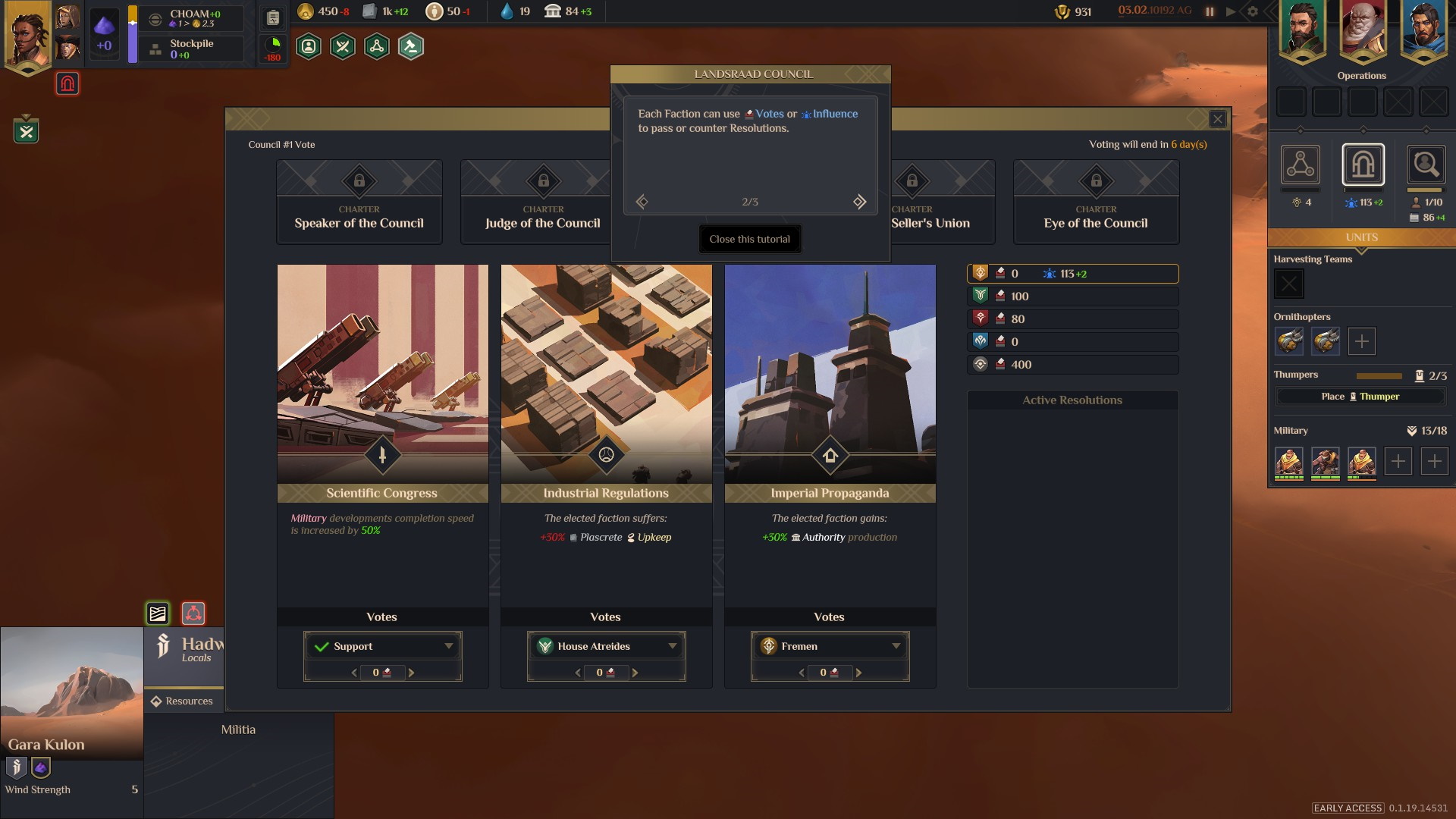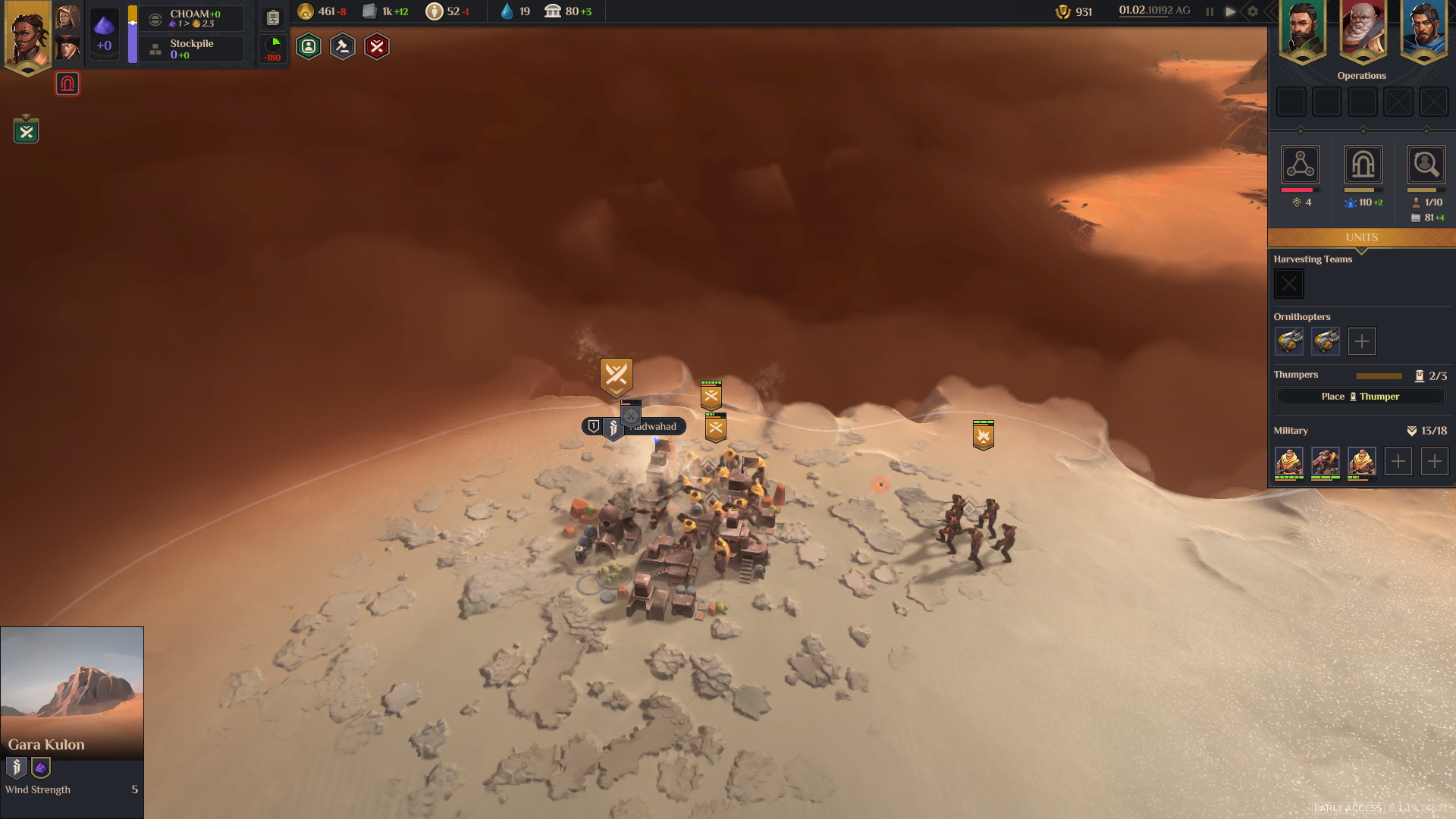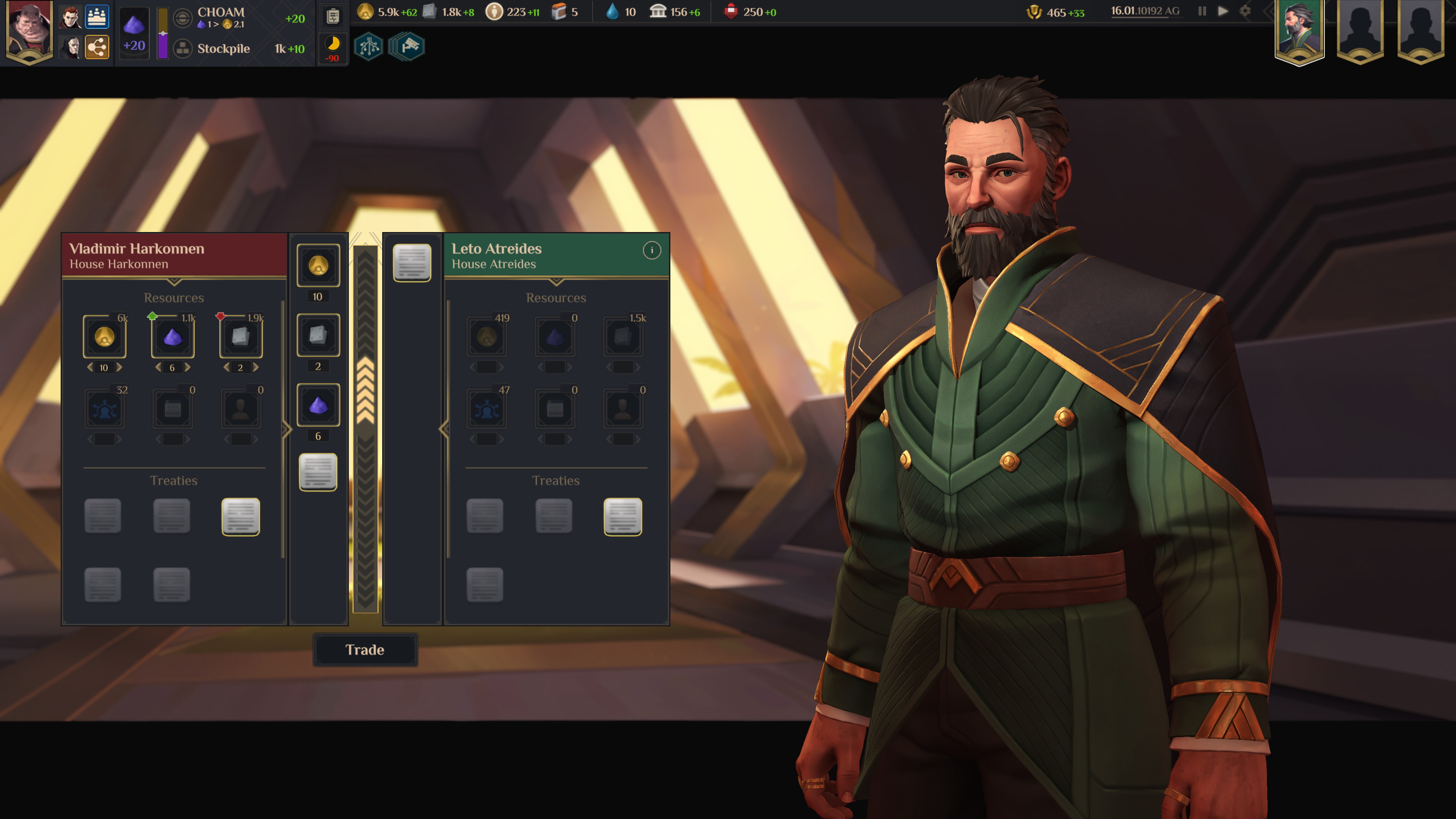4X games light my brain up, and starting Dune Spice Wars the first time was almost like the expanding brain meme come to life. The genre is enough to catch my interest, but add in a fantasy sci-fi setting, the promise of deep political and economic systems revolving around conflict over a basic resource, and you’ll make me a very happy person.
In theory. Dune Spice Wars has all of these things, but it’s also very much still in Early Access. The management systems are at once overly complicated and frustratingly restrictive. You have few meaningful choices over how to lead a campaign, and that means little incentive to keep playing. It has promise, but the current build is a bit of a letdown that betrays its own possibilities.
Dune Spice Wars Early Access Review: Not So Spicy Yet
Dune Spice Wars opens with a dramatic narrative sequence outlining the four factions’ motivations. I opted for the Fremen, initially. They’re the only indigenous race left on the planet and one that wants to “turn the planet green” by reclaiming their rightful place. I discovered shortly after the game started that my choice actually mattered very little. Aside from a few minor advantages and some slightly different advisors, the Fremen play similarly to the Smugglers, who play similarly to the Atreides, who play similarly to the Harkonnen.
Your goal is, as ever in a 4X game, total domination. How you arrive at that goal doesn’t matter, mostly because there’s only one way to do it – keep the trade guilds happy with regular spice shipments and conquer the other three factions. You’ll earn spice by harvesting spice fields near certain villages, conquer settlements to gain more resources, and customize these towns and villages with buildings that boost your resources in some form, such as extra water, Dune’s version of supplies or food.
It’s all fairly standard stuff, albeit with a Dune skin pulled over it. Combat revolves around a limited roster of unit types that, despite their apparent strengths and weaknesses, tend to perform the same in most circumstances.
I’m one of those who actually likes overly complex games. If you make me take notes to keep up with your systems, I’ll love it. Spice Wars aims for complexity, but the current build misses the mark in a few ways.
Take the politics system. During my first few Landsraan meetings – nation-wide council gatherings that pass laws and shape government – I threw all of my influence into passing measures that benefited me, even at the expense of the citizenry. There are a few problems with that, though. One is the corruption inherent in that process, a sly, backhanded method of politics that goes against the honor-bound Atreides house or the noble Fremen.
The other is the unnecessary complexity. Along with influence is a second stat I’ve already forgotten about that determines how many votes you can cast and the likelihood you’ll get your way. You’ll automatically end up with influence regardless of how you play, so the end result seems like complicated window dressing placed over an overly linear system.
The issue spills over into other areas of the game as well. Authority, for example, accrues naturally from the settlements you conquer. If you want to subjugate a new village, you need a certain amount of Authority, but getting it is just a matter of waiting an in-game day. How you manage or mismanage your territories doesn’t matter.
The same goes for the espionage branch. Complicated menu and advisor stats aside, infiltration boils down to sending agents on a quest and hoping they succeed. Here, too, your actions have much less influence than you’d expect.
The advisors and faction leaders also seem like a bit of a missed opportunity. They’re one of the few aspects after the opening introduction with substantial flavor text giving them personality and, you would think, a dynamic role to play in the world. Instead, they perform basically the same functions.
I was surprised to see my espionage-oriented advisor have the same available espionage tasks and even the same chances of success as my second advisor who was less suited to spy work.
Dune Spice Wars Early Access Review — The Bottom Line
Pros
- Strong potential.
- Rich source material to draw on.
- Solid 4X strategy foundation.
Cons
- Factions are too similar.
- Territory management is fairly basic.
- Needless complexity in several systems.
- Shallow narrative and characters.
Spice Wars has rich source material to draw on for creating meaningful moments tailored to these distinct personalities, and I hope it ends up doing more with its characters to distinguish itself from similar games.
I still enjoyed my time with Dune Spice Wars despite all this. It’s a strong 4X game with everything you’d expect from the genre, so if you’re just after a strategy game with a trace of Dune flavor, then it’s fine to go ahead and jump in now. There’s just the potential for so much more here, and with some fine-tuning, Spice Wars could be a standout strategy game once it leaves Early Access.
[Note: Shiro Games provided the copy of Dune Spice Wars used for this Early Access review.]










Published: Apr 29, 2022 04:55 pm